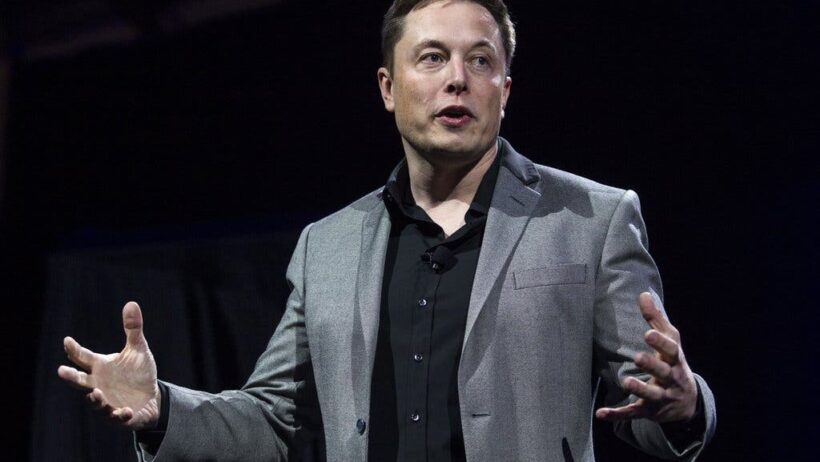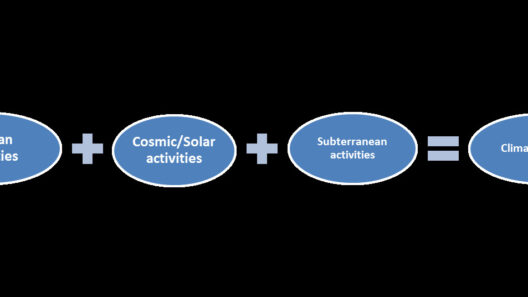Elon Musk, a name synonymous with innovation and ambition in the realms of technology and space exploration, has also emerged as a prominent figure in discussions regarding climate change. His ventures into electric vehicles and renewable energy have sparked curiosity about his beliefs concerning global warming and environmental sustainability. Does he truly grasp the gravity of climate change? Here, we explore Musk’s views, his contributions to combating climate change, and the broader implications of his ambitious goals.
In recent years, Musk has made headlines not merely for his technological feats but for his outspoken stance on the urgent necessity of addressing climate change. He unequivocally recognizes that climate change is a reality; his commitment to electric vehicles through Tesla and sustainable energy through SolarCity exemplifies this recognition. He believes that the reliance on fossil fuels is a ticking time bomb, one that imperils the planet’s future. Embracing a future powered by renewable energy sources resonates with his overarching philosophy: that humanity can and must transition to sustainable energy systems to avert environmental catastrophe.
Musk has articulated the importance of climate consciousness, arguing that fossil fuel dependence exacerbates global warming, leads to catastrophic weather events, and threatens biodiversity. His fervor for renewable energy is not just a corporate strategy; it emanates from a deeply rooted understanding of the implications of not acting swiftly. He understands that, if left unchecked, climate change could lead to devastating consequences for future generations, including sea-level rise, extreme droughts, and unprecedented natural disasters.
One of the most salient characteristics of Musk’s approach is his combination of optimism and urgency. He frames the fight against climate change as both a challenge and an opportunity—a call to harness ingenuity and technological advancement. Rather than falling victim to despair about the state of the world, he posits that innovative solutions are within reach. The ambitious target of making Tesla the world’s leading electric car manufacturer reflects this ethos, demonstrating his belief that sustainable technology can be economically viable and widely adopted.
Through Tesla, Musk has pursued an audacious vision of transforming the automotive industry. By making electric vehicles (EVs) attractive, efficient, and desirable, Musk aims to broaden their appeal and thus accelerate the shift away from gasoline-powered cars. His message is clear: electric vehicles are not just a niche market; they are the future of transportation. This paradigm shift aligns with his broader belief that technological innovation can, and must, lead the way in mitigating climate change. Tesla’s continuous improvements in battery technology and charging infrastructure support Musk’s assertion that electric mobility can outpace traditional vehicles in both performance and sustainability.
However, Musk’s journey has not been without its controversies. As a public figure, his statements and actions have occasionally attracted scrutiny. While he does emphasize the importance of transitioning to sustainable energy, critics argue that some of his ventures may not align fully with this vision. For example, the mining of lithium for EV batteries raises environmental concerns, posing questions about the sustainability of the very technologies aimed at reducing environmental impact. These dilemmas illustrate the complexity of solving climate issues and the need for multifaceted approaches that prioritize environmental integrity at every stage of technological development.
Musk also advocates for a strong governmental role in combatting climate change, recognizing that policy can either hinder or accelerate progress toward sustainable practices. He vocally supports carbon pricing and renewable energy incentives, underscoring his belief that strategic governmental actions can foster innovation and ensure a smoother transition to a sustainable future. By harnessing the power of both the private sector and effective government policies, Musk envisions a scenario where significant reductions in greenhouse gas emissions are achievable.
Moreover, Musk’s focus on solar energy through SolarCity and his recent ventures with Starlink, aiming to provide internet access to remote areas, further demonstrate his understanding of climate challenges. Solar energy can play a pivotal role in reducing the reliance on fossil fuels. He has passionately advocated for solar power as a primary energy source in harmony with electric vehicles to create an interconnected, sustainable ecosystem. This vision encompasses not only technological advancements but also societal shifts toward more responsible energy consumption habits.
Elon Musk’s belief in climate change is evidenced by his proactive strategies and relentless pursuit of technological innovation aimed at deriving solutions. His efforts to promote electric transportation, enhance battery storage, and expand solar energy usage reveal a commitment to fostering a sustainable future. Yet, the journey is fraught with challenges that demand ongoing discussions about the implications of emerging technologies, environmental ethics, and the intricacies of global supply chains in the context of sustainability.
Ultimately, Musk’s narrative is one of hope, intellect, and pragmatic idealism. He advocates for a monumental shift in how humanity perceives energy, transportation, and sustainability, positioning these endeavors not merely as corporate responsibilities but as moral imperatives. In understanding his contributions and beliefs about climate change, we gain insight into a vital discourse on not just the technology we use, but the kind of world we aspire to create. As we navigate these turbulent times, the dialogues initiated by figures like Musk help illuminate paths toward a more sustainable existence, compelling us all to engage more deeply with the crucial issue of climate change.







